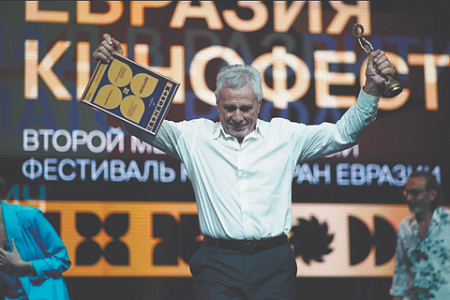
The Russian Black Sea resort of Sochi recently became a vibrant hub for international cultural exchange, hosting the II International Eurasia-Kinofest. Moving beyond a simple holiday destination, the city welcomed a diverse program of films and industry events, fostering dialogue through the universal language of cinema. The festival distinguished itself by showcasing a curated selection of pictures from countries often underrepresented on the global stage, including Kenya, Turkmenistan, Tajikistan, and Kyrgyzstan, captivating audiences with compelling stories free from the gloss of celebrity stardom.
A key highlight of the festival was the celebration of cinematic legends whose work has transcended borders. The jury featured celebrated Serbian actor Gojko Mitić, famed across Eastern Europe for his iconic roles as Native American heroes in classic “Red Westerns,” and Brazilian actress Lucélia Santos, who remains a household name in the region for her leading role in the groundbreaking 1980s television series “Escrava Isaura” (Slave Isaura). Their presence underscored the festival’s theme of bridging cultures, as they were warmly received by a public for whom their characters are part of a shared cultural memory.
The festival’s main screenings and events took place at the historic Summer Theater, a landmark of 1930s architecture recently restored with a new glass dome. This revitalized venue provided a stunning backdrop for a program that celebrated both heritage and new horizons. A special tribute was paid to the legacy of the renowned Soviet director Sergei Gerasimov and his wife, actress Tamara Makarova. Esteemed actors and directors who studied under the legendary duo, including Natalya Bondarchuk, Natalya Arinbasarova, and Sergei Nikonenko, gathered for a heartfelt roundtable, reflecting on the profound influence of the Gerasimov school on generations of filmmakers.
At the heart of the festival was its competition, which presented 53 films across feature, short, and documentary categories. The Grand Prix was awarded to “Navi: Dear Future Me,” a powerful Kenyan-German co-production that confronts the critical issue of women’s rights and forced child marriage in modern Kenya. The jury’s decision to honor this poignant and beautifully crafted film solidified the festival’s commitment to promoting cinema with a strong social conscience. Other notable entries, such as Tajikistan’s “In Search of Truth,” which portrays an uncompromising journalist, further emphasized the event’s focus on stories of integrity and courage from around the world.
